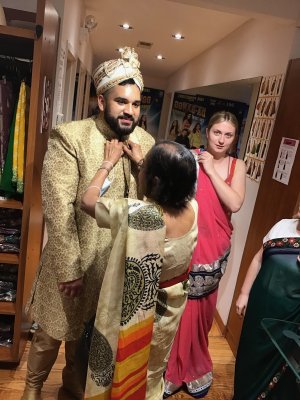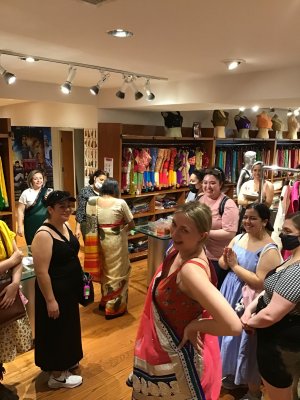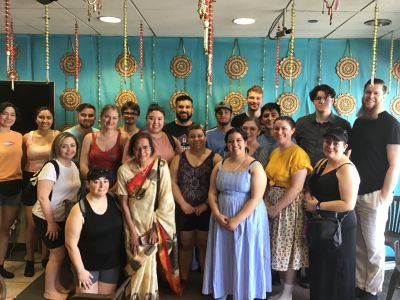On our second day exploring the city, we visited Devon Avenue which is located in Northwestern Chicago. Upon arriving we felt as if we had entered a new world. Despite no evident geographical divide, it was clear that we entered a culture-rich community filled with shops, colorful clothing, shop signs featuring different languages, and unique aromas that filled the air. We quickly learned that Devon Avenue embraces the culture of individuals from five countries with seventeen religions. This street is home to shops that carry items imported from their countries that strengthen the link to their homeland. Uniquely, these individuals become connected through their desire to hold on to traditions, values, and beliefs.
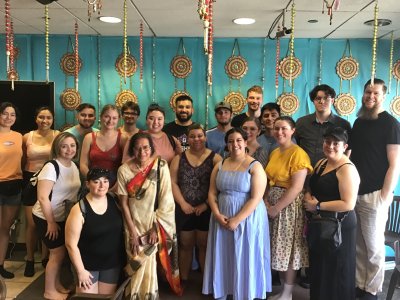
For many cultures, apparel holds a particular important role in this community. An individual’s clothing choice conveys information about how they self-identity and how others perceive them. In Devon Avenue, Sarees and sherwanis allow years of traditions to blend with adaptations of American culture. This intersectionality creates a distinction that neither fully replicates nor abandons their roots. For the residents of Devon Avenue, this may mean always wearing traditional clothing meanwhile others choose to wear Western options.
To those on the outside, we may lack the knowledge of the clothing’s significance but we undoubtedly are able to recognize the beauty of these garments. The intricate sewing patterns, shiny beading, and the rich colors allow these individuals to pay homage to their roots that have been planted in Chicago – thus, creating a home away from home and a sense of familiarity. We were invited to wear the clothing which permits us to not only learn the general details about their community but also a glimpse into their experience. This opportunity was quite rare!
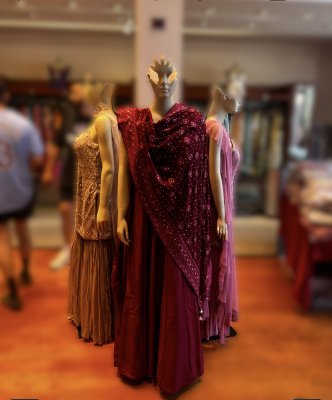
The diversity of the ethnic cultures in the neighborhood prompted many questions. We admired the distinct groups in the area and we were intrigued by the idea of further diversifying Devon Avenue. In particular, we wondered if an individual of another culture would be able to join the business community on Devon Avenue. This resulted in a conversation about exclusivity. Devon Avenue utilizes a council to decide what businesses can participate in their successful commerce. In the process of obtaining an answer, the tour guide alluded to the council’s desire to maintain cultural homogeneity. This method of conservation can possibly create tensions between the representative group of Devon Ave and the outside ethnic population. Despite these groups both being ethnic groups themselves they are not the type of ethnicity that Devon Ave fights to preserve. The complicated nature of this reality could pose a threat to the unity of the shared experience that connects the ethnic communities. Therefore, the strive for cultural preservation may damage both ethinic groups in the end.
This experience impacted our understanding of identity formation specifically among immigrant backgrounds that are not similar to our own. We are appreciative of the opportunity to immerse ourselves in different cultures and discover insights into unfamiliar worlds that surround us.
Ann Gonzalez, Katia Gutierrez Avila, Jazmin Vargas





